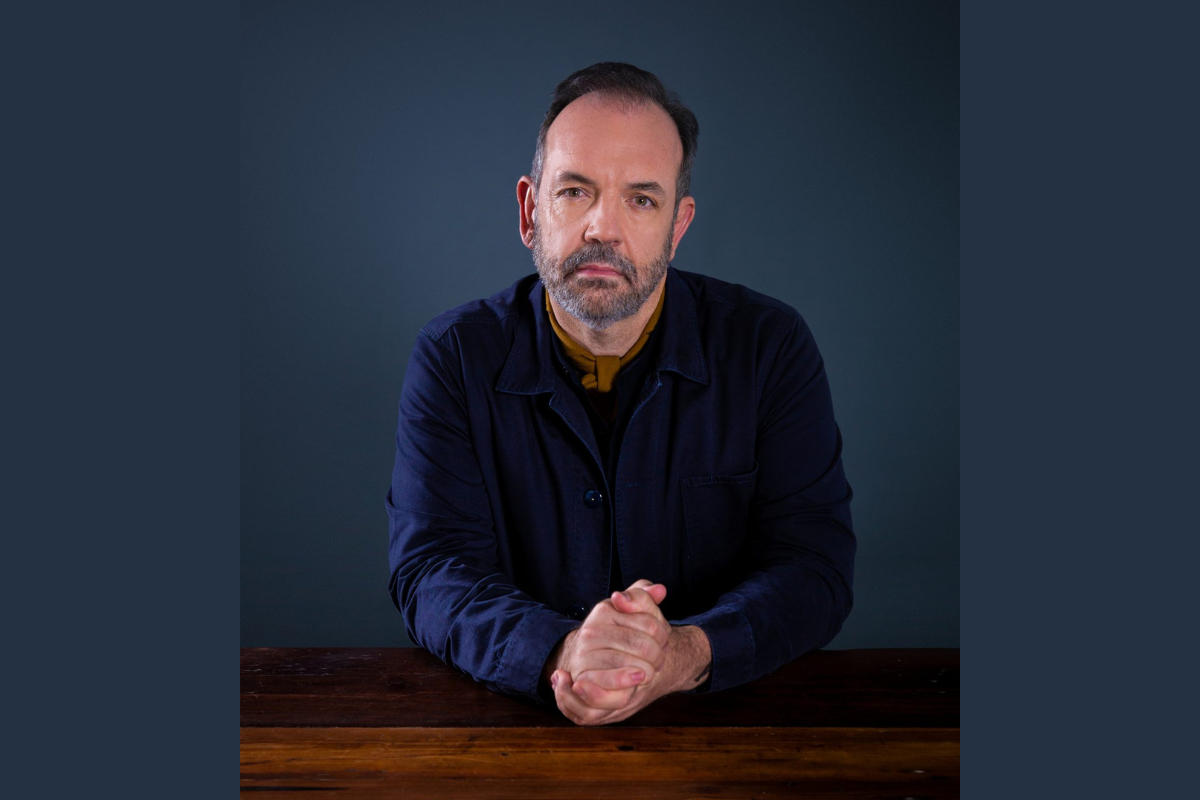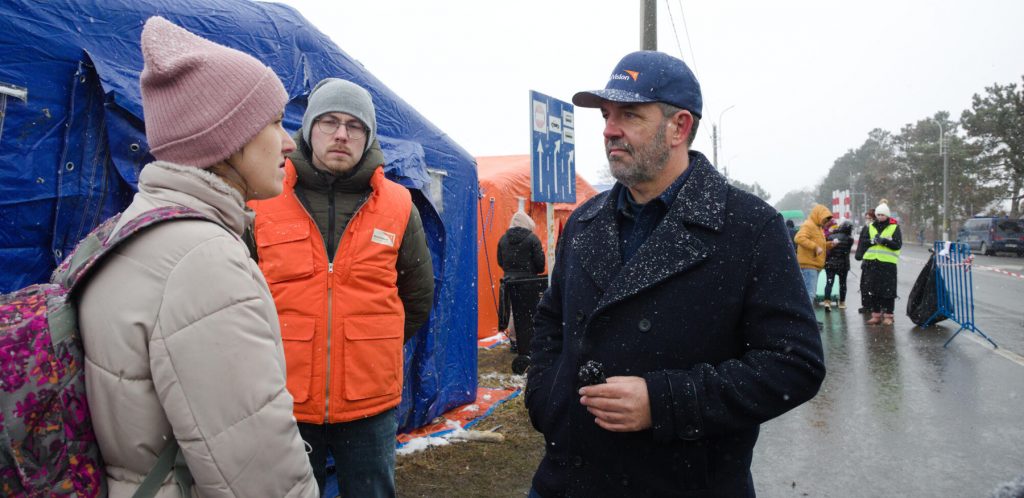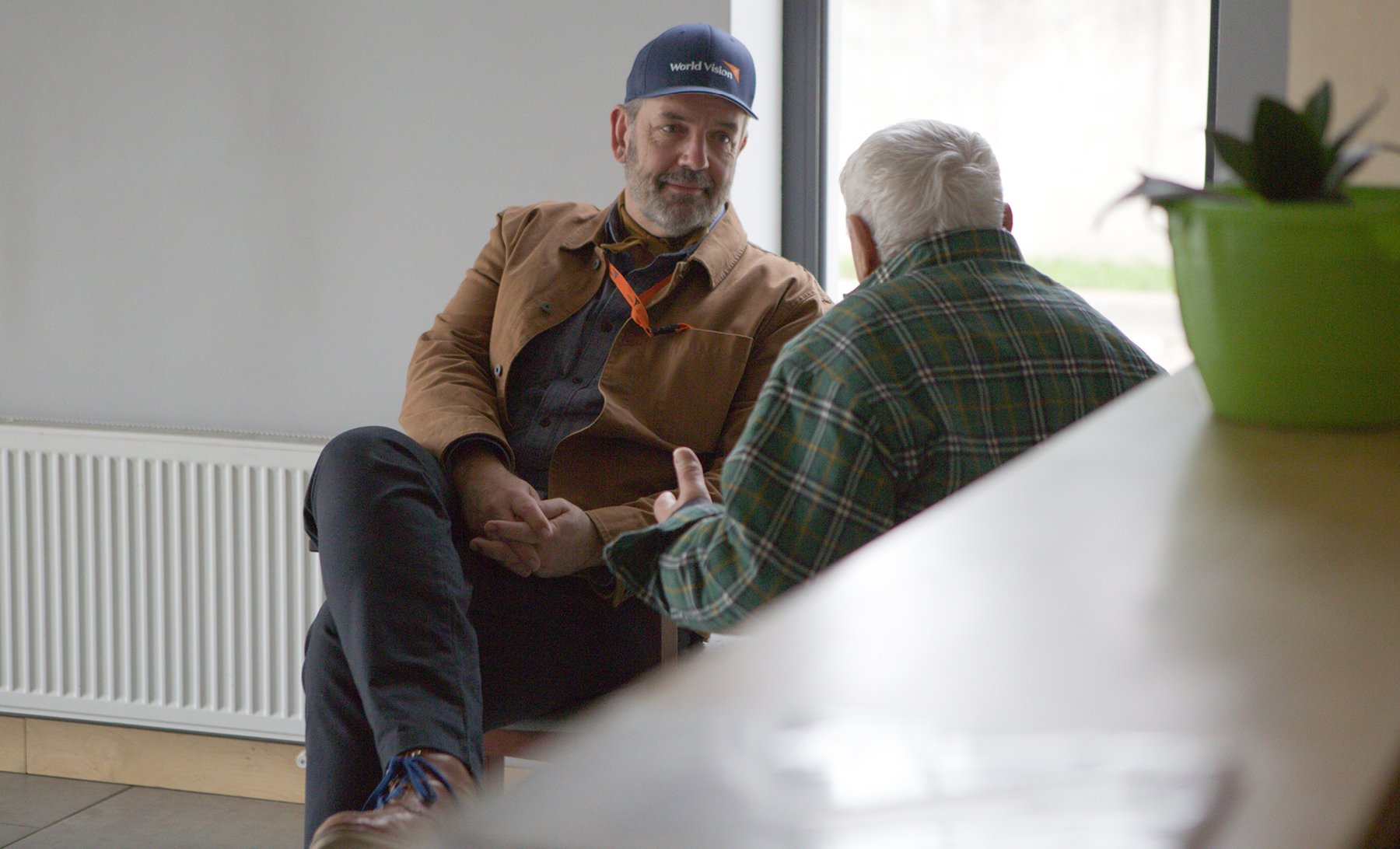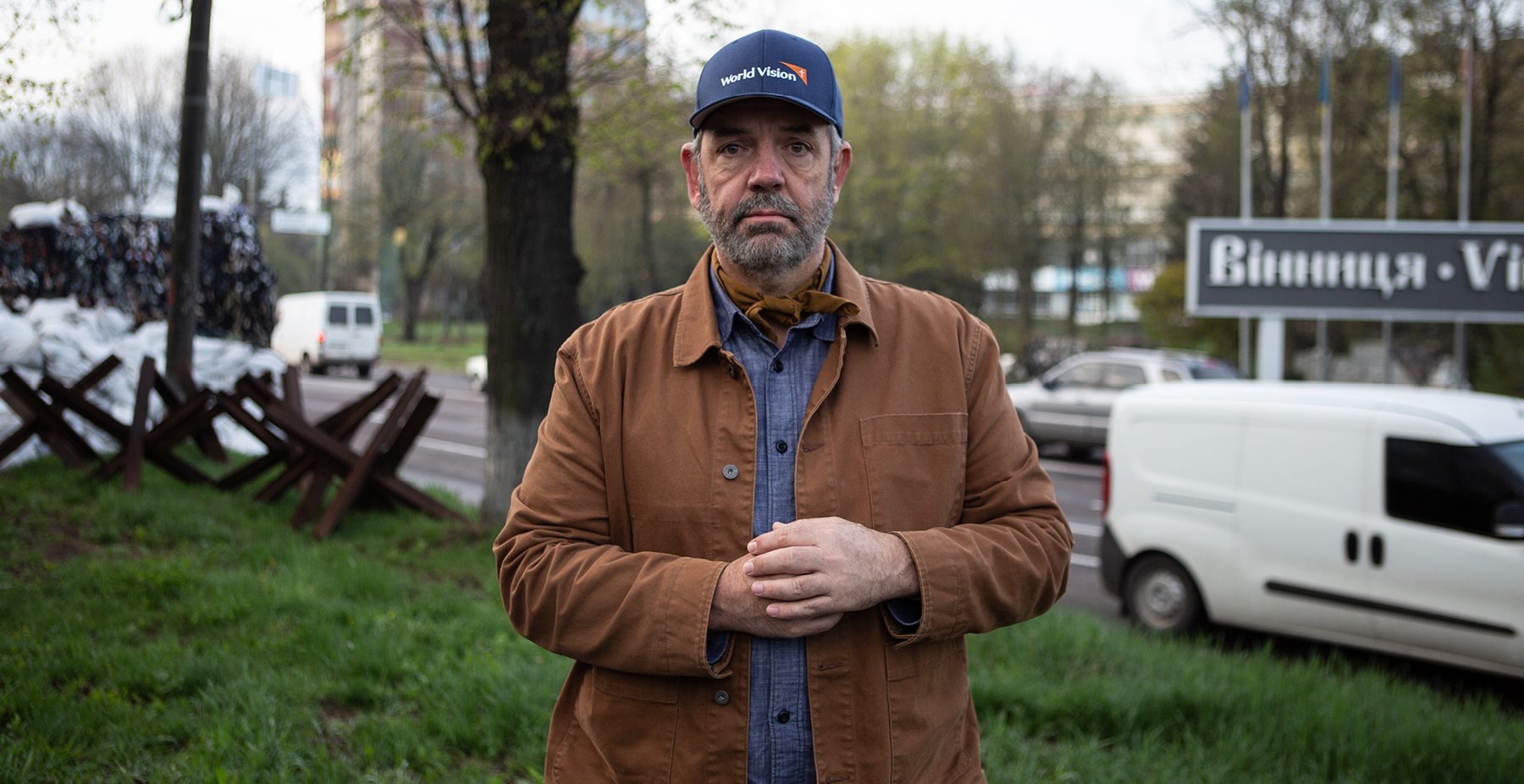Daniel Wordsworth has spent a lifetime immersed in the need and suffering of others. Upon leaving the Australian Navy three decades ago, he began a journey to the limits of human endurance and desperate living. Starting on the streets of Sydney working with the city’s poor, Daniel eventually headed overseas to front lines of a different kind.

“I’ve worked in every major conflict, war, disaster and situation where people are at their extremity,” Daniel says. “And I’ve done that either on the ground, leading teams in Afghanistan or East Timor, or I’ve led teams as the CEO of an organisation working with the Rohingya refugees in Bangladesh.”
But now, after 25 years, Daniel has returned to Australia to join World Vision Australia as CEO. Despite his efforts at home and abroad to make a difference in people’s lives, it was the intersection between his own trajectory and World Vision’s mission that proved the most promising way for Daniel to achieve the greatest change.

“You may not realise it, but World Vision is the largest charity in the world,” he says. “It’s the largest force for good driven by everyday people on the globe at the moment; actually, the largest of its kind that has ever existed.
“Being a part of that, particularly in Australia, where World Vision is a part of the fabric of society, I’m in the best position you could ever possibly be in if you want to make the world better. You get one life, you have to lead and do what’s good.”
Champions of change
The elements that make World Vision Australia stand out among its global siblings held a significant amount of personal appeal to Daniel, who is a passionate champion of Indigenous Australians. “If we could ask all Australians what they would change, I think it would be to fix this deep and horrible wound we have as a country in relation to how we’ve come alongside our First Nations people,” he says. “It’s unacceptable to me that wound exists, and I’m not alone.”
Daniel believes the path to healing begins with a national conversation. “We have to find a way that we can all work together that doesn’t produce this triggering and anger that so often happens,” he says. “We need to propose change within Australia, then watch what happens and learn from that.”
Which is where World Vision Australia comes in. By creating a platform that allows non-indigenous Australians to learn and get involved, the organisation is helping those who may not have the confidence to take direct action, to do more than nothing. “That’s the challenge I’ve taken on,” Daniel says. “To create an environment where people can be confident, have belief and trust and know that they’re part of the solution, not part of the problem.”
A strong vision
Another issue at the forefront of the nation’s mind is the climate crisis, which Daniel says is the most pressing issue threatening Australia’s future. “The best version of this is, we’re all going to be in a dustbowl hellscape in 20 years. The worst version is, Mad Max.”

You get one life, you have to lead and do what’s good.
But many of the solutions already in place don’t go far enough, Daniel believes. “Stopping the use of plastic straws doesn’t feel like it’ll make all the difference,” he says. “It doesn’t connect, and so for many years I’ve thought it’s almost a hopeless situation.”
Yet when he joined World Vision Australia, Daniel learned about Farmer Managed Natural Regeneration (FMNR), which he believes is one of the most exciting approaches to tackling climate change he’s ever seen during his time in the space. “For the first time ever, when I learned about it, I called my daughter that night and said ‘I think I’m going to hand you a better world now.’”

For the first time ever, when I learned about it, I called my daughter that night and said ‘I think I’m going to hand you a better world now.
The World Vision method, as Daniel describes it, is to regenerate entire forests, which then act as “natural vacuum cleaners for carbon in the atmosphere”. Through this approach, the organisation believes it can remove 25 per cent of existing carbon and significantly slow climate change.
“Our goal is to regenerate enough bush and forests around the world to hit that target, and the good news is it’s entirely doable,” Daniel says. “So I can look at my daughter now and think ‘the world will be better in 10 years time’.”


